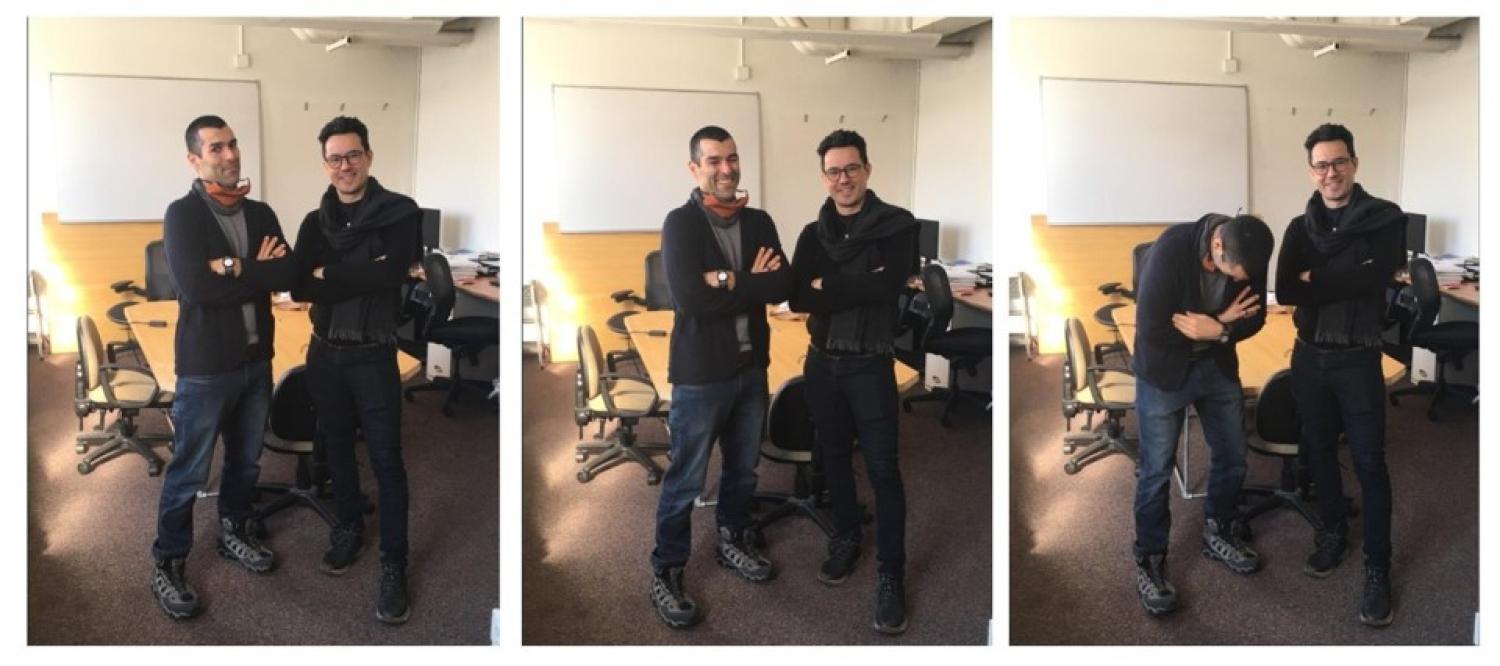New Directors of CEDaR

We (Shawhin and Jota) propose to serve as co-directors of CEDaR. We propose co-directorship as a strategy to share the workload of leadership and to help diversify CEDaR’s portfolio of partners and activities. We have collaborated on research and service commitments over the past four years and enjoy one another's work styles. We feel we build off one another’s energy and enthusiasm. We believe that our existing local and international community-engaged design and research efforts fit squarely with CEDaR’s mission while offering opportunities to expand CEDaR’s portfolio of projects and resources. In this preliminary plan, we outline our tentative vision for CEDaR as guided by its current mission.
We ground our aims for CEDaR in its mission statement, as published in the bylaws (with our emphasis added):
CEDAR serves as a resource center and clearinghouse for ENVD, supporting and coordinating community engagement activities. In addition, it organizes and manages research on problems of community engagement, decision-making, and environmental adaptation. It works in local neighborhoods, the Front Range region, as well as national and international sites, on issues of sustainability, and the participatory design and planning of buildings, landscapes, and public spaces. It carries out funded research in these areas and responds to requests for services from public and private agencies and community-based interest groups, providing opportunities for design and planning students to learn from experiences with real-world partners. CEDAR is committed to interdisciplinary approaches that are socially responsive and ecologically sound.
Drawing on the statements emphasized in this mission statement, we envision stewarding and strengthening CEDaR’s capacities as:
a platform that supports various forms of research on community engagement, embracing methodological and epistemological frameworks for research grounded in design, social sciences, and humanities
a center that works on local, international, and transnational issues
a center active in seeking and managing sponsored research, and maintaining a robust publication record on the research that it supports
a platform for enrichment and professional practice for students to gain valuable experience as interns, research assistants, and researchers in training (e.g. through CEDaR-supported grants).
While seeking to make progress on these aims, we are excited to practice proactive and transparent governance of CEDaR. In accordance with the bylaws, we will schedule bi-monthly meetings with the Executive Committee (the bylaws state “about once a month”) and make decisions based on consensus. We will look to CEDaR’s network of past leaders and the Executive Committee for guidance on engaging a diverse group (e.g. including students, underrepresented minority leaders) to serve as the Community Board (formerly the Board of Directors). Brian Muller will continue to provide active advising and guidance throughout spring 2022. We anticipate holding meetings of the Community Board twice annually, we will seek guidance from the Executive Committee on this.
Who we are
Shawhin Roudbari is an assistant professor in Environmental Design. In his research, Shawhin studies ways designers and communities organize to address social problems. He bridges sociological studies of social movements, race, and community engagement with environmental design practice. In a recent three-year, NSF-funded investigation, Shawhin led an ethnographic study of impacts of community-engaged design on communities and community power. His team’s findings on neoliberal racism and community engagement has pioneered critical perspectives on community engaged design and research. He uses that research to inform innovations in community empowerment through community-based design projects. In conjunction with his research on community engagement, Shawhin has established the transdisciplinary dissentxdesign research collective, which uses design and theory building to investigate how dissent and political-engagement tactics play out in space. That group’s work contributes to theories of contentious politics in the spatial professions and employs ethnographic methods. His research projects are supported by the National Science Foundation and community engagement grants. His groups’ work is published in design, development, and sociological journals. Shawhin’s is currently collaborating on a study of the architecture of white institutional spaces, a small community-driven exploration of racism in spaces of small local businesses (e.g. cafes and bookstores), and an ethnography of radicalization and contentious political engagement by design professionals.
Jota Samper is Assistant Professor at the Environmental Design Program ENVD in the University of Colorado Boulder. He is an architect, and planner, he has taught architecture, urban design, and planning. His work at Informal Settlements Research ISR concentrates on sustainable urban growth and dwells at the intersection between urban informality ("slums") and violent urban conflict. The main goal of ISR is to create and reveal innovative urban tools to visualize the challenges (climate, regulatory and violence) presented in informal landscapes. He is a co-founder of Mobility/Movilidad a nonprofit dedicated to video archive and mapping with marginalized communities. Born and raised in Medellín. He obtained his BA in architecture in Universidad Nacional de Colombia, a master’s in city Planning and a Ph.D. On Urban and Regional Planning from the Massachusetts Institute of Technology (MIT), where he lectured. His project “Living rooms at the Border,” with estudio teddy cruz, exhibited at the MoMA. He is a fellow of the “Drugs, Security and Democracy, SSRC,” alongside colleges from Oxford University he develops the “The Changing Character of Conflict Platform,” Samper’s work the “Atlas of Informality” has been presented in a TEDx talk to an audience of more than 1.3 million viewers.

